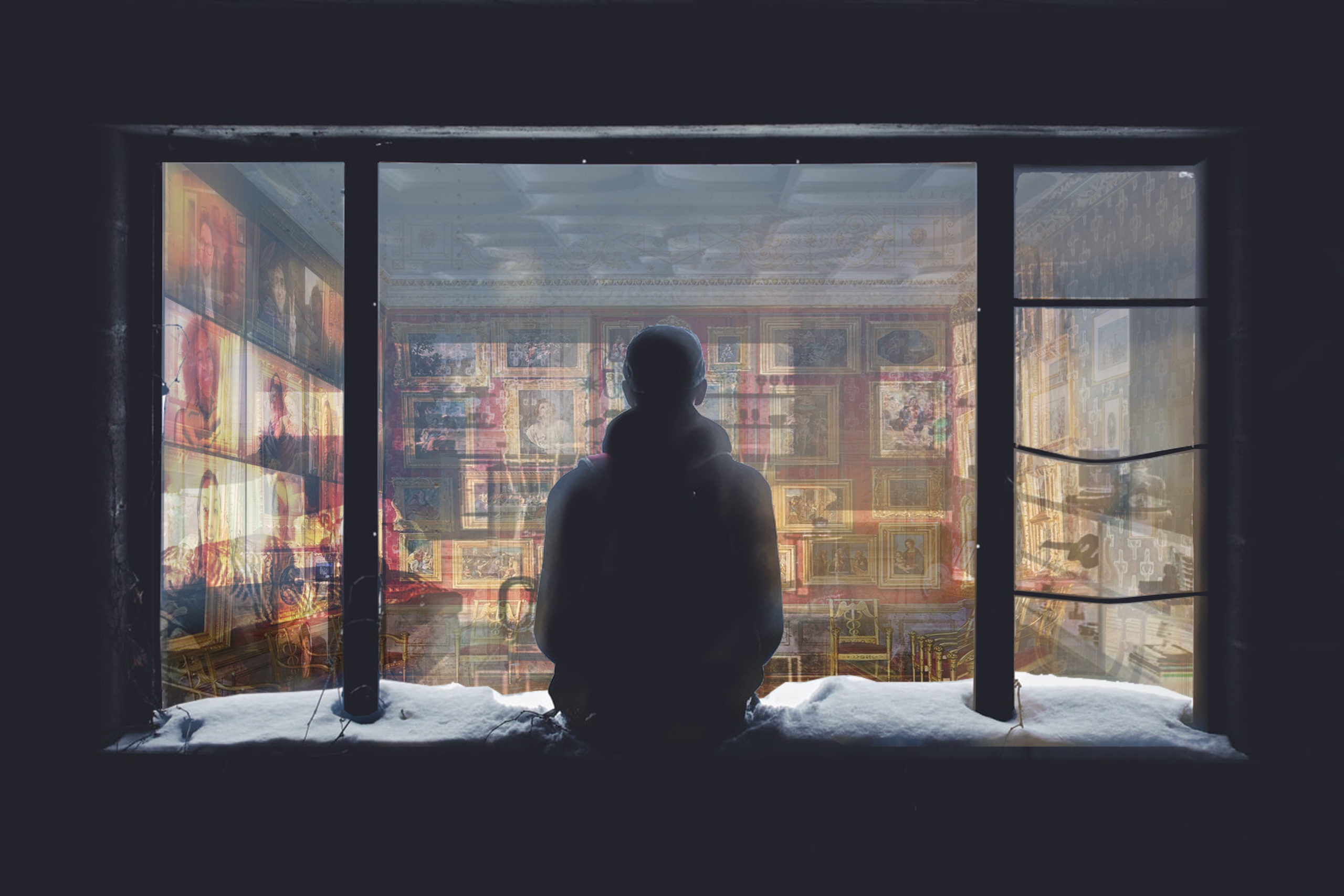Vertes Retreat is a vacation home for a family of four located on the Sunshine Coast in BC Canada. The home is perched 30′ above a pristine lake in the form of an L shape plan that hugs the existing rocky landscape. Flat roofs hover above two wings of the home, providing large overhangs and covered outdoor spaces. A one storey wing contains the Great Room, while a two storey wing contains the Garage, Media room and Bedrooms above. Skylights extend the entire length of the circulation paths at both wings of the home, flooding these areas with much needed natural light during the long rainy winters of the Pacific Northwest. Large glass openings throughout the home frame stunning lake views with glimpses of the rocky landscape behind positioned in select locations. The home is at one with the landscape and provides its occupants with a place to play and rest during their escapes from urban
Architizer chatted with Julian Carnrite, Architect, AIBC Principal at W O V E N Architecture and Design, to learn more about this project.
Architizer: What inspired the initial concept for your design?
Julian Carnrite: Working with Phillip Van Horn Design, Woven Architecture and Design walked the owner’s property and selected the most desirable location for the home. The existing topography and shoreline suggested an L shape plan that would wrap around a hill set back from the shore line and position both legs of the L such that they were parallel with the shoreline. Flat roofs were proposed to allow for inside-outside relationships during rainy periods with floor to ceiling glass and skylights being utilized to provide maximum natural light.
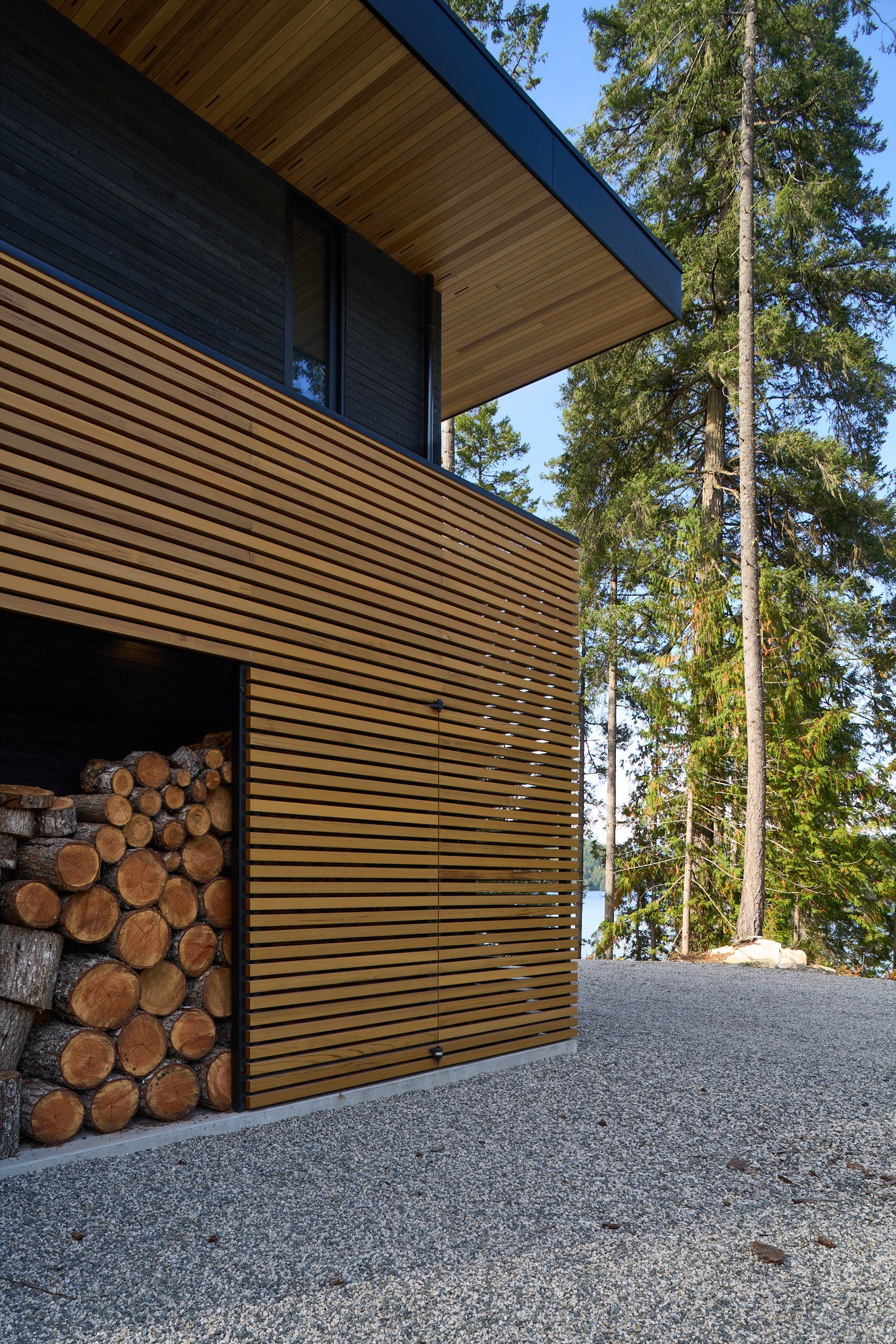
© Woven Architecture and Design
What do you believe is the most unique or ‘standout’ component of the project?
A large outdoor covered lounge and kitchen is located at the end of the living wing providing a place to be outside while being sheltered from the elements.
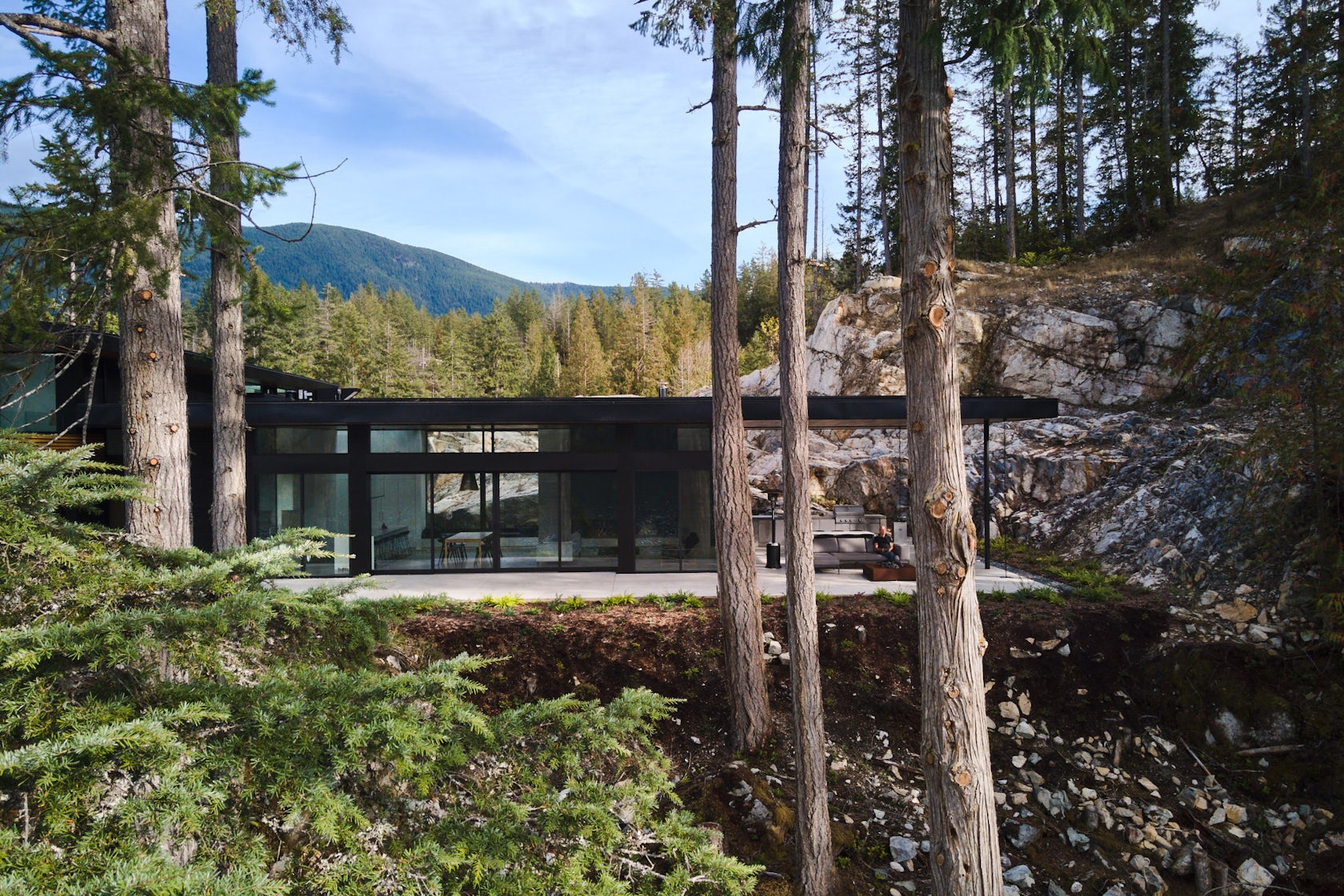
© Woven Architecture and Design
What was the greatest design challenge you faced during the project, and how did you navigate it?
The Covid 19 outbreak and lockdown was a time of great uncertainty during which the status of the project became precarious. Thankfully, Jenkins Construction (the General Contractor), owner and designers resolved to continue with all aspects of the project as efficiently as possible.
How did the context of your project — environmental, social or cultural — influence your design?
The temperate climate of the Pacific Northwest includes several months of rain and grey skies. The design response to this condition includes large roof overhangs with floor to ceiling fixed and operable glazing with skylights.
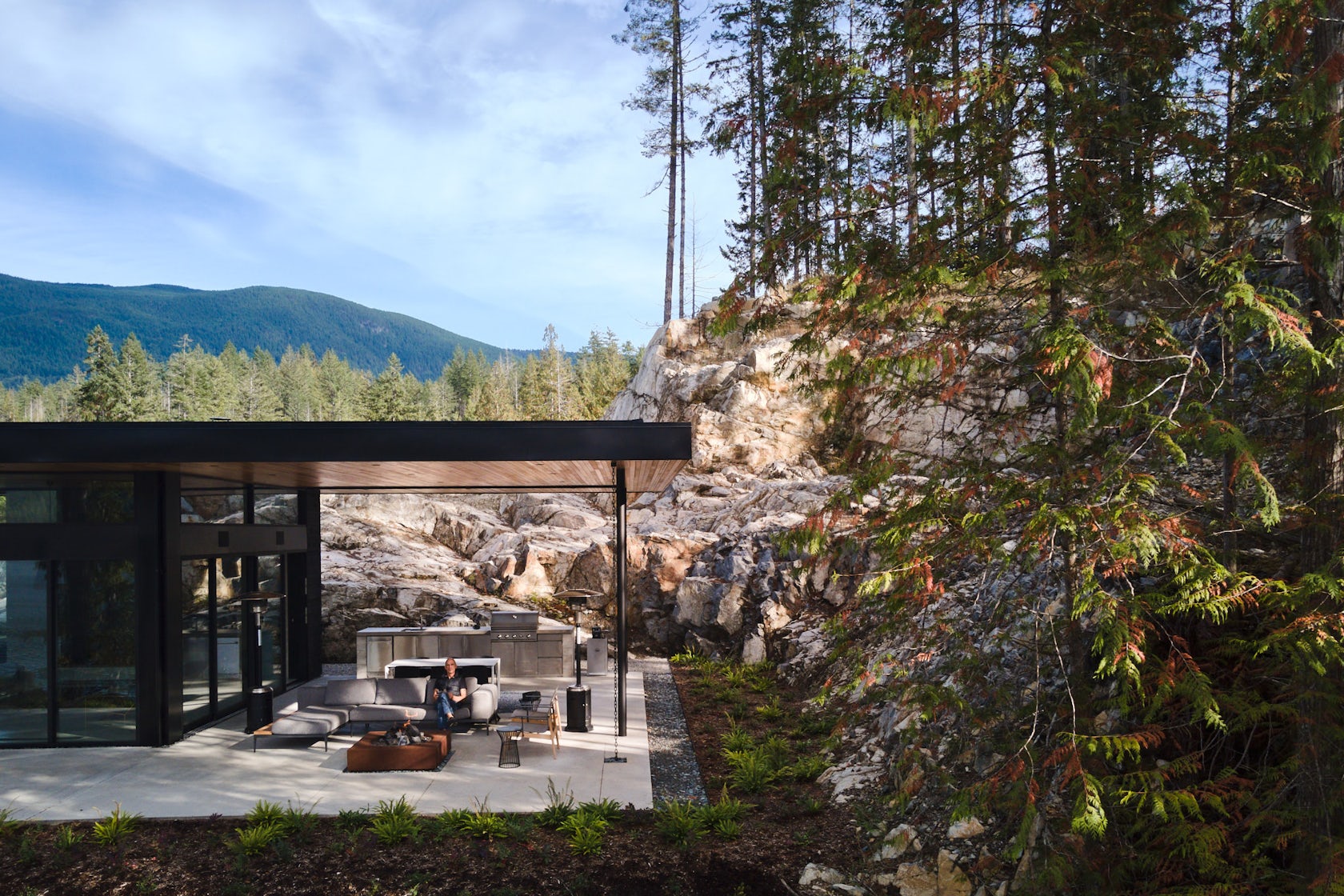
© Woven Architecture and Design
What drove the selection of materials used in the project?
Western redcedar was used for siding which is indigenous to the area and provides exceptional durability.
What is your favorite detail in the project and why?
Western redcedar soffits transition to ceilings with only window and door frames in between. This consistent detail throughout the home helps to dissolve the boundary between interior and exterior.
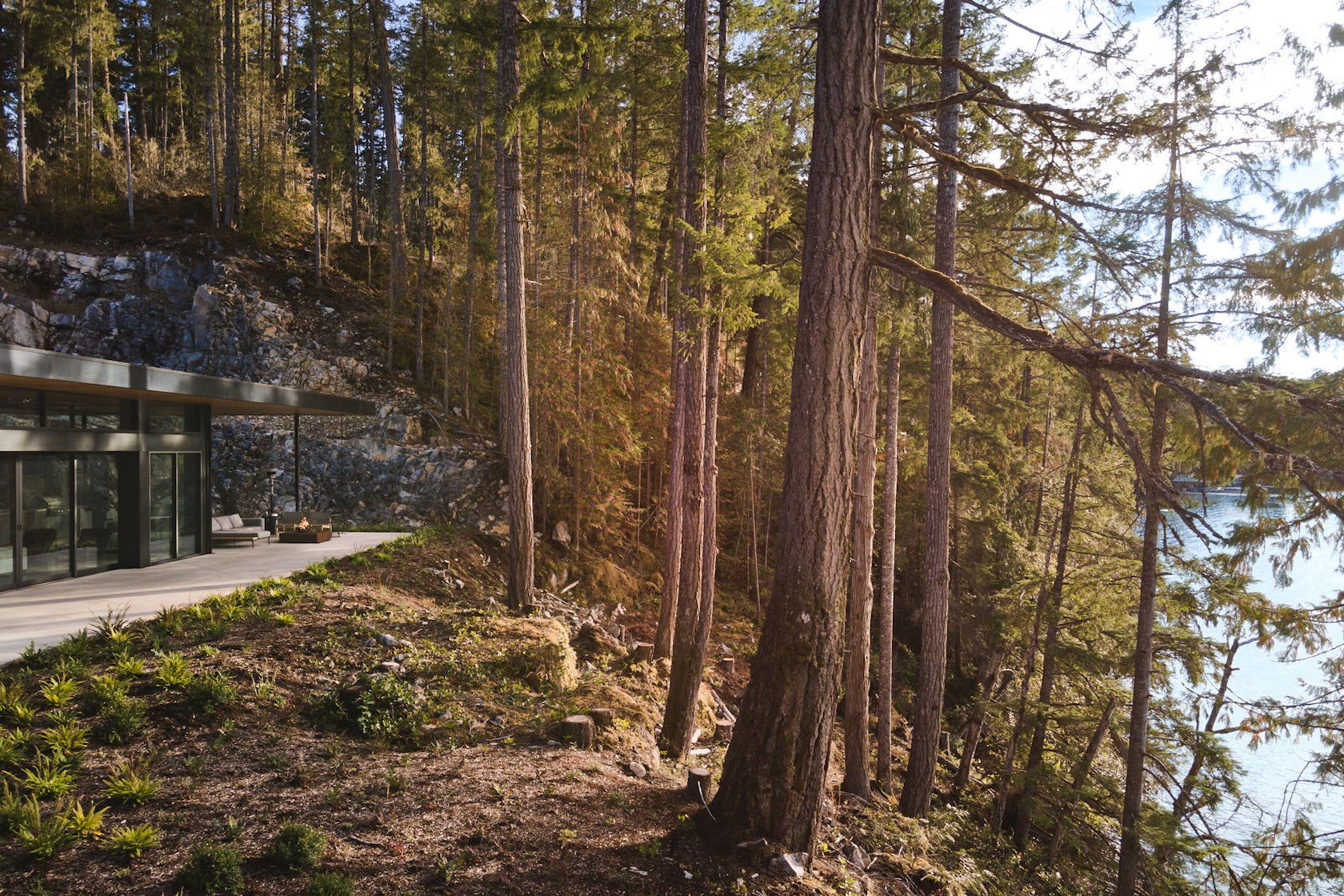
© Woven Architecture and Design
How important was sustainability as a design criteria as you worked on this project?
Souring local, natural, and sustainable materials for the project helps to limit the environmental impact of the project.
In what ways did you collaborate with others, and how did that add value to the project?
A successful project is typically the result of a a collaboration between builder, client and designer where all parties understand their roles and aim to provide solutions.
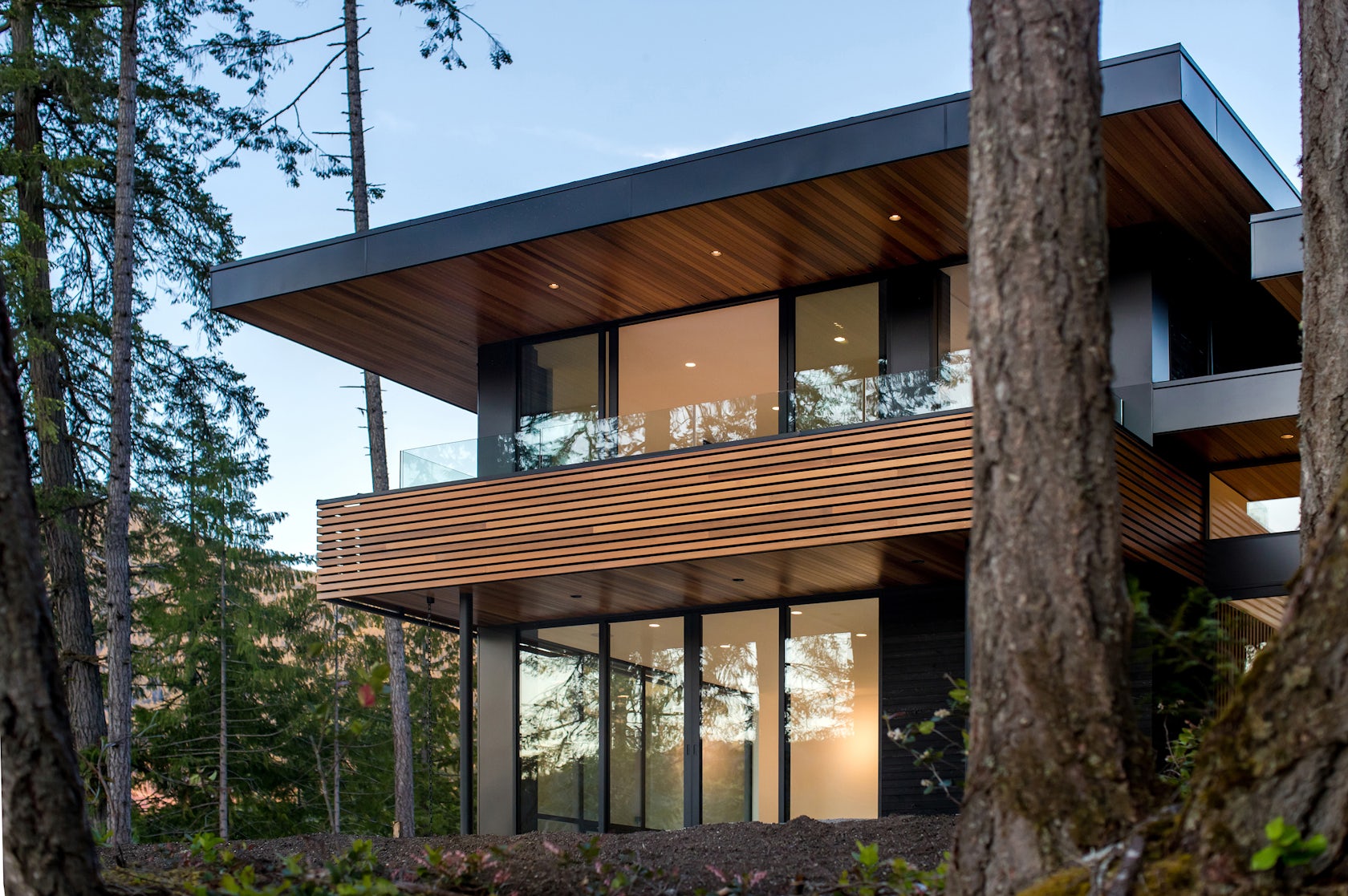
© Woven Architecture and Design
How have your clients responded to the finished project?
The clients spend a great deal of time at the project with summers and holidays being the main periods of use. They love it.
What key lesson did you learn in the process of conceiving the project?
Structural coordination on the project was significant. Having been through that process, we anticipate a similar process on new projects.
How do you believe this project represents you or your firm as a whole?
The intent of the project is to create spaces that feel connected to the surrounding environment which is a goal on every project we undertake.
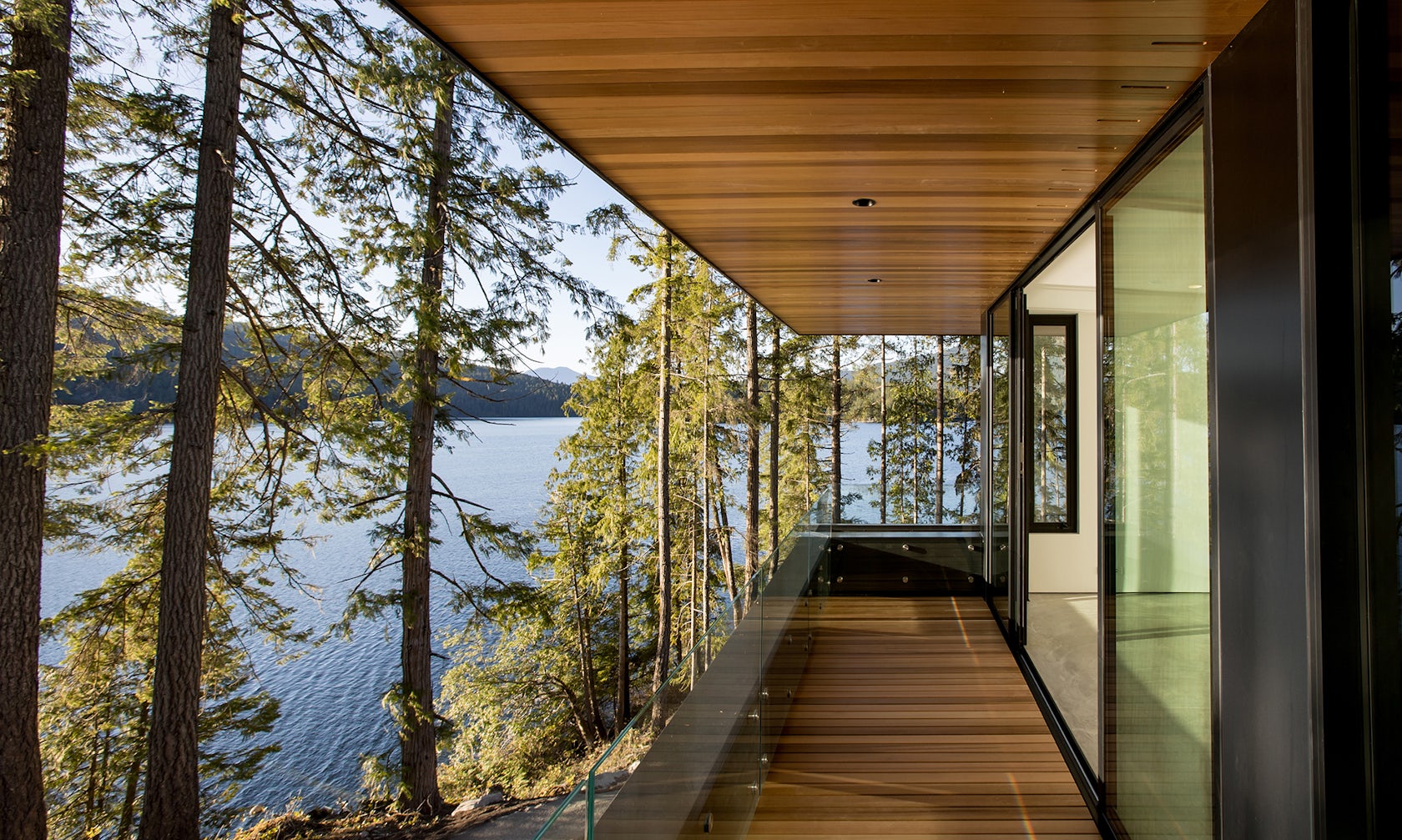
© Woven Architecture and Design
How do you imagine this project influencing your work in the future?
The Vertes Retreat provided a solid foundation for the firm to proceed with future work. Studies related to the connection of interior to exterior were greatly informative and have enabled us to implement similar strategies on future projects.
Is there anything else important you’d like to share about this project?
It takes a great client and builder to deliver a successful project.
Team Members
Phillip Van Horn Design (Schematic Design Consultant), Jenkins Construction, Diversified Glazing Systems, Allester Engineering, Inline Electric, Redl Kitchens, silentSama architectural photography
Consultants
Phillip Van Horn Design
Products / Materials
Fleetwood Windows and Doors, Blu Bathworks, Secto Design, Redl Kitchens, Stuv America
For more on Vertes Retreat, please visit the in-depth project page on Architizer.























 Vertes Retreat
Vertes Retreat 